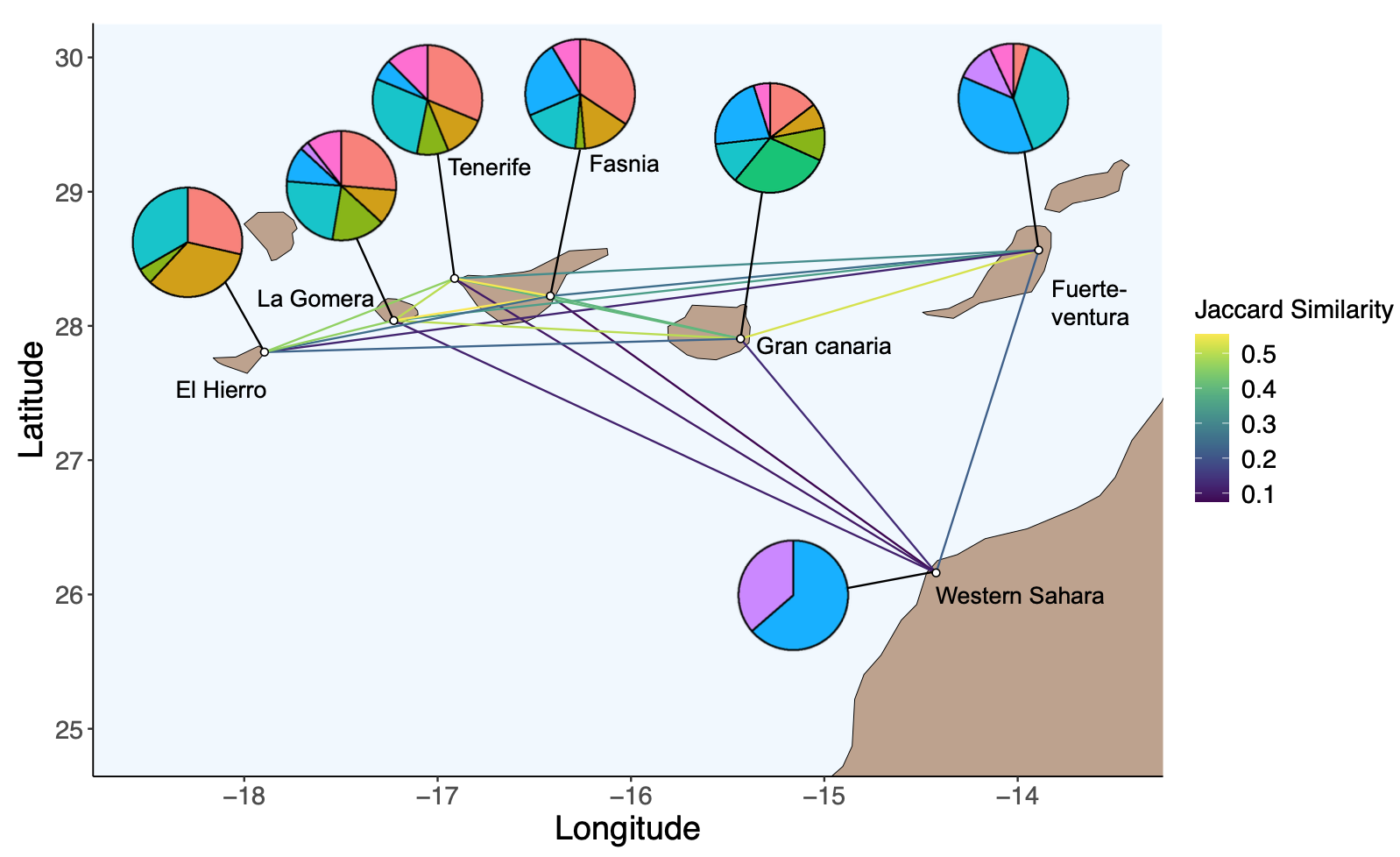Course details
Course name: Analysis of ecological-biological networks
Course number: 205-2-1609
Lecturer’s name: Shai Pilosof, pilos@post.bgu.ac.il
Course Structure: Lecture: 2 hours Exercise: 2 hours Total # of Points: 3
Course schedule: Sunday to Thursday 15-19/2/2026, 8:00-17:00, and 12/3/2026 8:00-16:00 Sde Boker campus.
Teaching method: The course is given entirely in English, in person (no zoom or hybrid classes). Students will be actively engaged through paper discussions, and because of the interactive format, enrollment is limited to 10 students. All classes, discussions, and presentations will be conducted in English, and students are encouraged to use their own research data for the final project.
Course description
Biological systems, and specifically ecological systems, consist of multiple interconnected entities that form networks such as gene interaction networks, food webs, plant–pollinator networks, metapopulations, and disease transmission networks. Understanding how these networks are structured is crucial for understanding the dynamics and functioning of biological systems. This course introduces the theory and methods for analyzing biological networks, with a primary emphasis on ecology but with applications extending to neuroscience, systems biology, and epidemiology. While examples and theory are drawn from ecology, the course is general in scope, reflecting the broad relevance of network science across biology.
The course is dynamic and adapted to students’ needs as much as possible. Course material may vary from what is currently written in the syllabus at the instructor’s discretion.
Course goals
Provide students with:
- An understanding of the (ecological) theory underlying the structure and dynamics of complex systems.
- Tools to perform network analysis on a variety of network types.
- Skills: programming and analysis of network data, advanced paper reading, presenting research, scientific writing.
Main course Topics
- Introduction to networks and complex systems
- Network structure
- Community detection
- Nestedness
- Robustness
- Multilayer networks
- Network dynamics
Academic and general requirements and prerequisits
- The only prerequisite is prior knowledge in programming. LLM-knowledge in programming does not count! Exercises are written in R. Students who wish to program in another language may do so independently.
- Students are required to arrive at the first class with R + RStudio installed, and knowledge how to use them. see: https://datacarpentry.github.io/R-ecology-lesson-alternative/
- An introduction to ecology course is recommended, but not required.
- Knowledge in linear algebra is recommended, but not required.
- The exercises are computational, and students are required to bring a laptop.
Course requirements and grading
- Compulsory attendance to lectures
- Compulsory attendance to exercises
- Grade components: Final report (in English) 50%, presentation of project 20%, paper discussion 20%, active participation 10%.
Details on course assignments:
Labs
Labs are not for submission BUT it is difficult to understand the material without hands-on analysis. Recommendation: apply the labs to your own data whenever possible. Lab topics are not completely compatible with class topics.
To do the labs you must have R + RStudio installed on your laptop. Please come ready, already to the first class.
Projects
The goal of a project is to provide you with real-life experience on how to use network in research. You are encouraged to select a project that will advance your own research.
Project types:
- Analysis. The analysis cannot be one that you have already done in your research. It can, however, be a new analysis that will advance your research. Hence, students are encouraged to use their own research data to advance their research. Alternatively, the project can be based on data available online.
- Theoretical development.
- Literature review of a thematic subject.
Final report: The goal of the final report is for you to practice and improive scientific writing. The final report will be 1500-2000 words with up to 3 figures. Reviews will be max 2500 words and 3 figures. Submit the final report by email to me. The final report is due on 21/3/2026.
Presentations
Presentations are on 12/3/205. Project presentations are in a conference style:
- 7 min + 5min questions and suggestions
- Background + questions
- Methods
- Results. It is ok if the results are not completely final. You can improve the project towards your final report, based on comments you will receive on your presentation.
- Discussion
Paper discussions
- Paper discussion can be led by 2-3 students.
- The student(s) leading the discussion should present the paper: Background, goal, methods, main results. They should also be able to explain the figures. The student(s) will ask leading questions to initiate discussion among the class about a particular result / method / criticism, etc.
- The students who are not leading: For each paper discussion, students should have had an overview reading of the paper in a way that would allow them to participate in the discussion actively. Each student should come prepared with 2 insightful comments/criticism/questions for the discussion.
